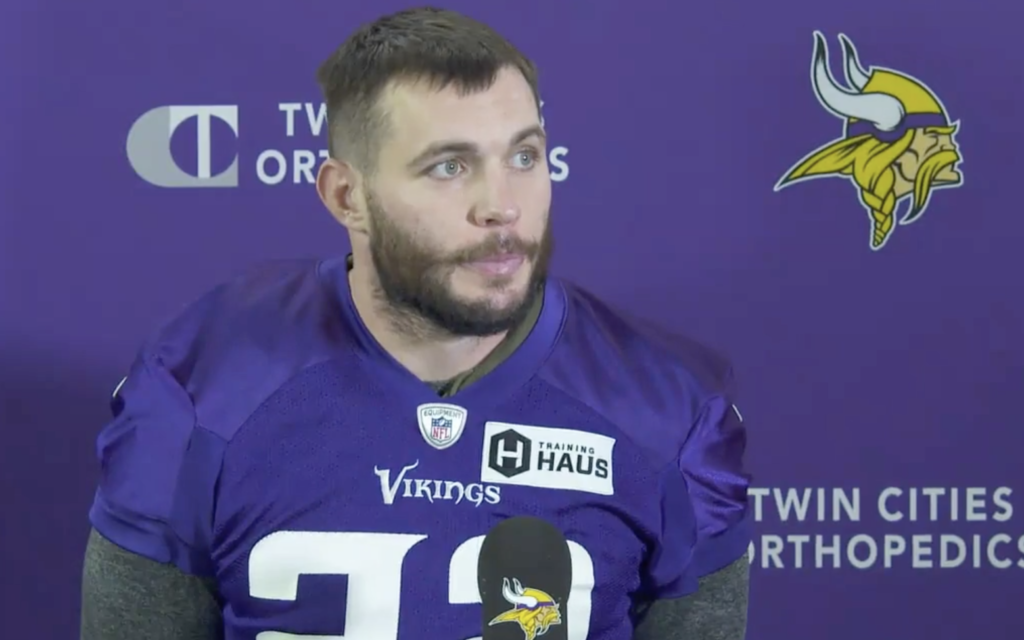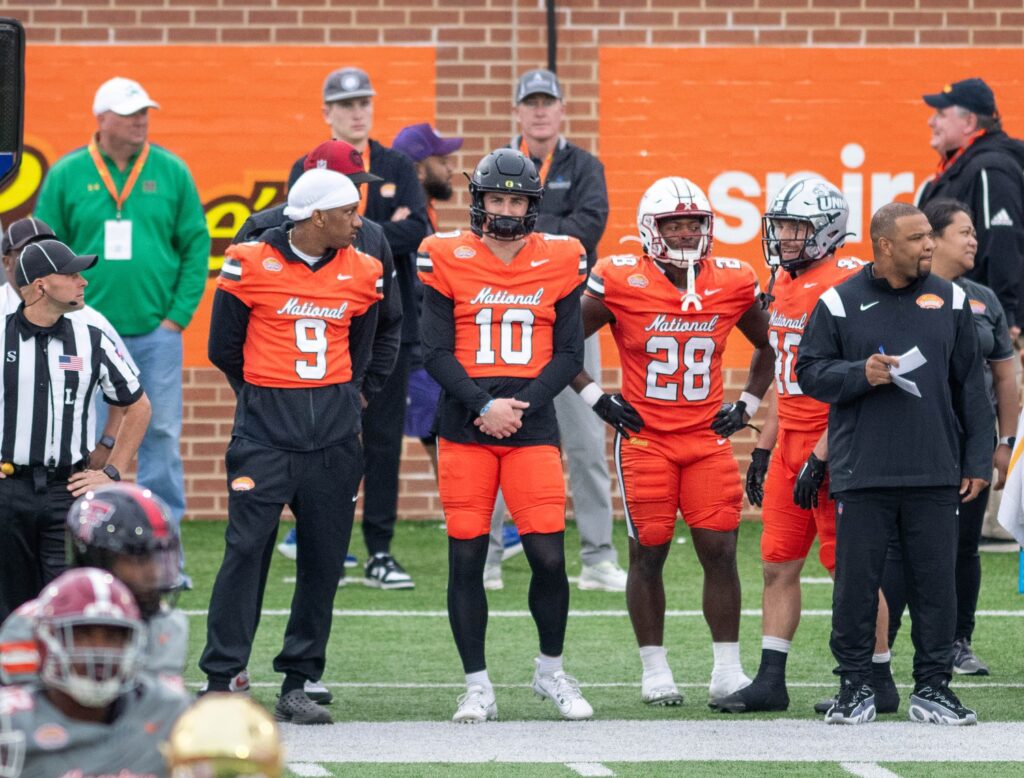Minnesota Vikings safety Harrison Smith met with the media for the first time since returning from the NFL’s Reserve/COVID-19 list.
Smith, who had an interception in Sunday’s loss to the 49ers, missed two games – against the Ravens and Chargers – after testing positive for COVID-19 on Nov. 7. Because he is not vaccinated he was forced to sit out and stay away from team activities for 10 days.
“Have you given any consideration to getting vaccinated or changed your thoughts on the matter at all after going through it?” Smith was asked during Wednesday’s press conference.
“No,” Smith answered. “I mean, for me, like I said, I felt fine the whole time.”
Smith said the positive test “came out of nowhere” and that outside of a taste sensation that he described as being “dull,” he “never really felt much.”
“It was weird. I tested on game day and I tested the next day just to confirm it. It’s weird when you feel healthy and you don’t play, but I get it. That’s how the virus works,” he said.
While Smith reported experiencing mild symptoms despite being unvaccinated, data continue to show the risk of severe symptoms, hospitalization and death is significantly lower when an individual is fully vaccinated,
A recent Texas study showed unvaccinated individuals were 13 times as likely to just test positive for COVID and about 19 times more likely to die from it than those those are fully vaccinated. And a just-released study by the NBA found vaccinated players with breakthrough infections were much less likely t spread COVID to others, as they shed the virus from their bodies much faster.
Smith is a good example of why the NFL has established stringent COVID-19 policies, making players get tested regularly due to the possibility of asymptomatic transmission of the virus. Both vaccinated and unvaccinated team members get tested on a regular basis during the season.
Smith said he’ll continue to follow NFL protocol and wear a mask.
According to the Centers for Disease Control and Prevention, natural immunity from COVID-19 illness varies by individual.
“For at least 2–3 months following infection, people with moderate-to-severe COVID-19 illness have higher titers of binding and neutralizing antibodies than people with mild illness,” the CDC says, noting that neutralizing antibodies in people who experience moderate-to-severe illness can last 5-8 months.
What is unclear is how natural immunity and vaccine immunity stack up against the new omicron variant, though health officials say being vaccinated is the best protection at this point.









